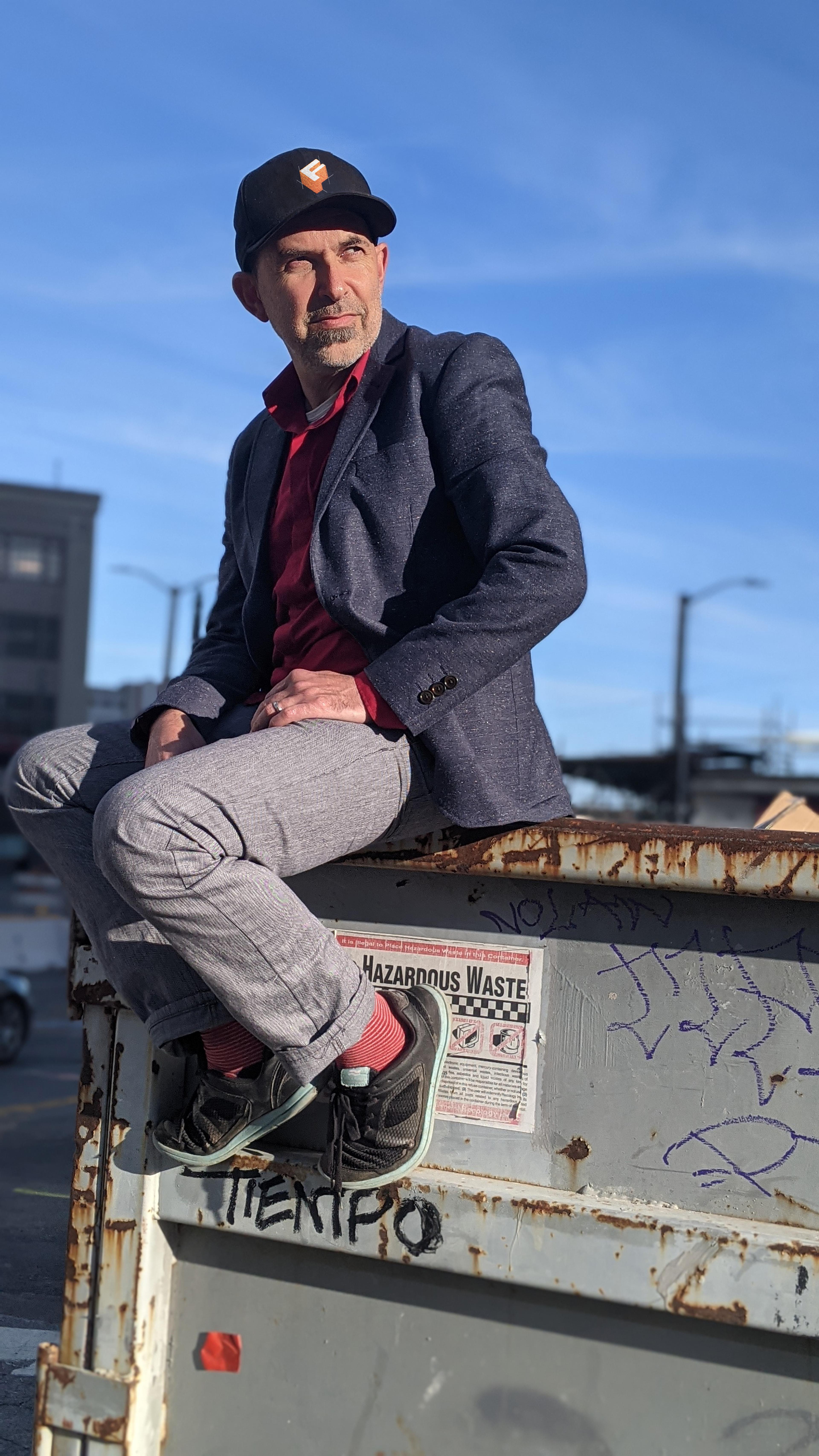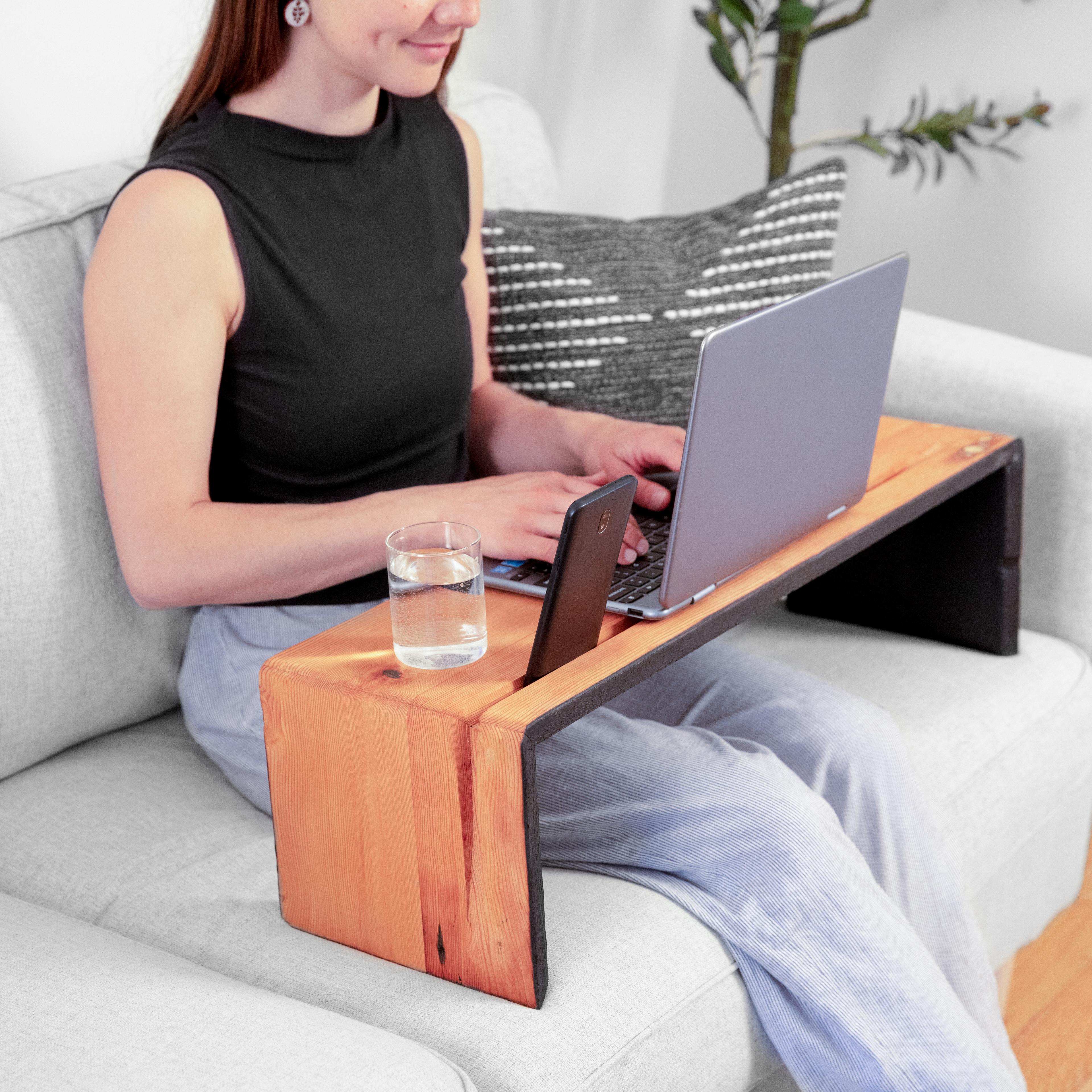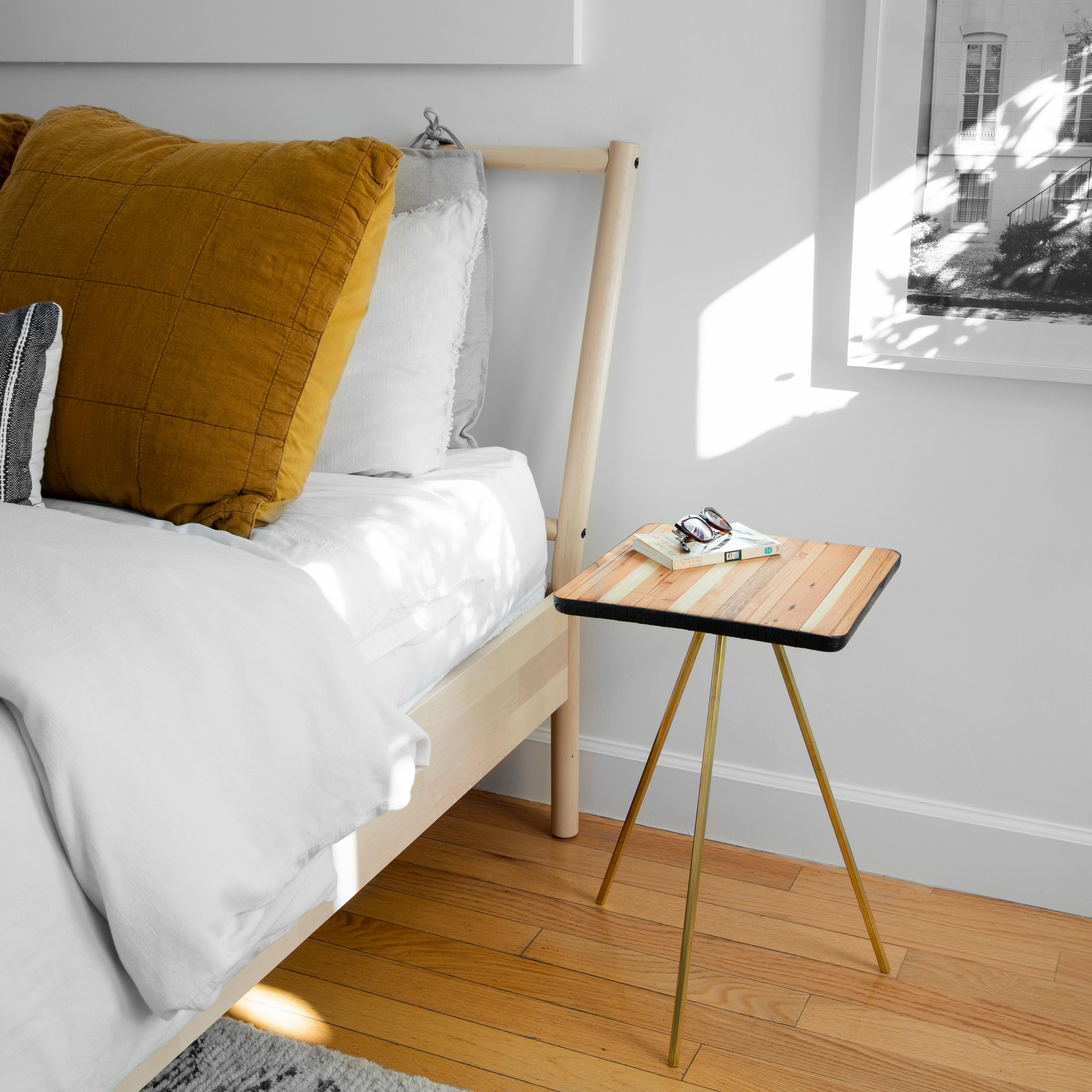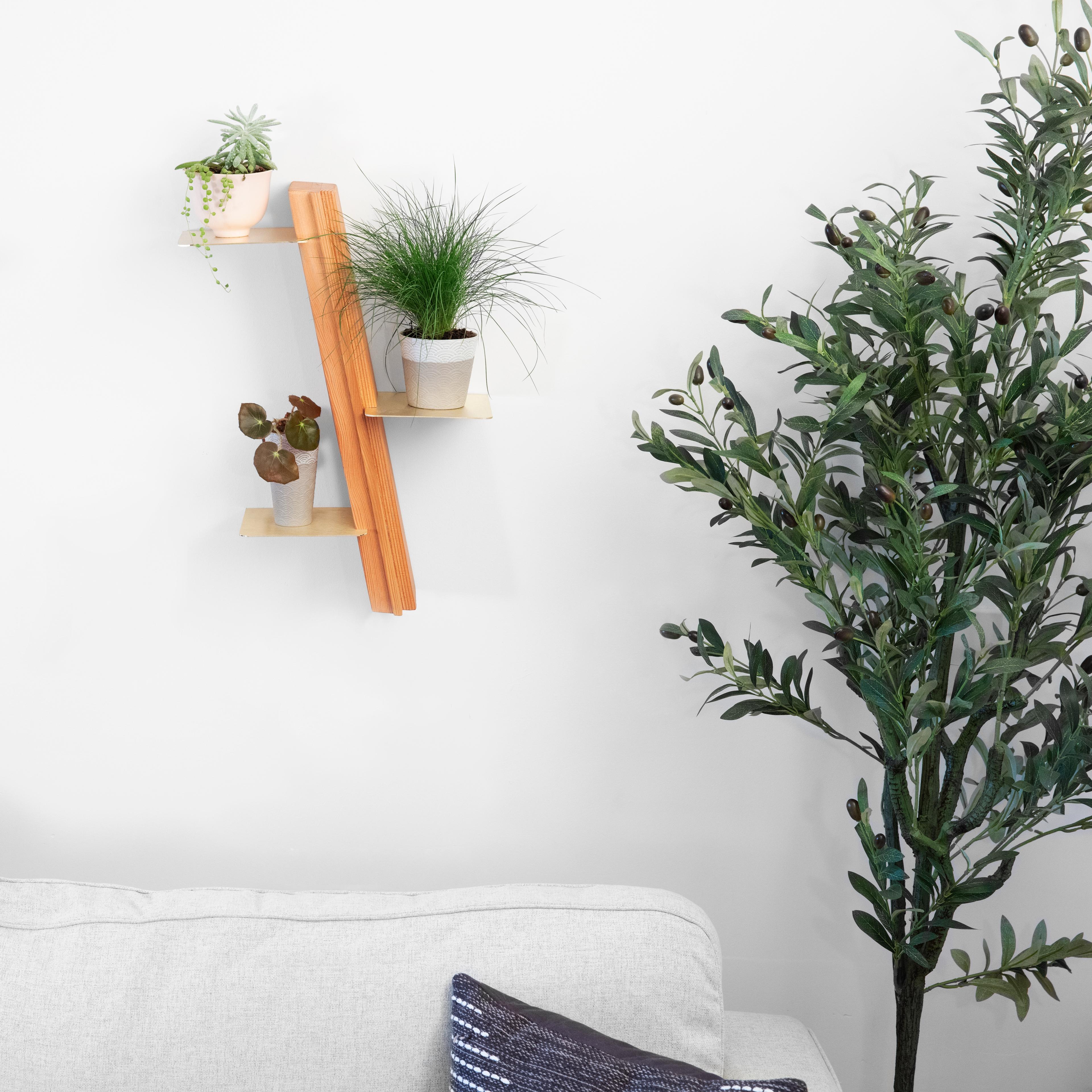In the realm of conscious entrepreneurship, there are visionary individuals who transcend conventional boundaries to create meaningful change in both society and the environment.
Sasha Plotitsa, the creative mind behind Formr, stands as a remarkable exemplar of this remarkable breed. His journey unfolds as an inspiring narrative of redefining design, repurposing construction waste, and empowering formerly incarcerated artisans to rewrite their life stories.
As we delve into the insightful interview with Sasha, prepare to be captivated by a story that blends artistry, sustainability, and social impact into a harmonious symphony of change.
Welcome to the world of Sasha Plotitsa and Formr, where good design meets the power of doing good…

Can you share the story behind the creation of The Formr and how you came up with the idea of combining empowering formerly incarcerated artisans with repurposing construction waste?
I was at a turning point in my life where I wanted to get back to doing design work, decades after I studied industrial design. I was looking to create a business model that focused on design, while somehow giving back to the community. I was doing silly searches on Google for “the worst problems in the world”, trying to find a cause that resonated for me. One day, while being in “sponge mode”, I came across an image of a coffee table on Instagram, which is when the first seed was planted to make furniture. But how would it become a model of positive impact? Inspired by my previous experience in interior design when I would see never ending piles of waste disappearing somewhere out of sight. Maybe I could find a way to divert some of that construction waste and reincarnate it into furniture building material. It seemed plausible, but would that be enough? I wanted to make more of an impact with this venture than that mission alone.
I began thinking about the workforce. How could I provide opportunities to an underserved population? Who was that population that needed support? That’s when I thought about the failed drug war, huge quantities of people being imprisoned, and what a significant challenge recidivism is in our society. Within 3 years of their release more than 50% are incarcerated again. People come out of prison looking for opportunities. Many companies refuse to hire people with a record, but those are the opportunities these people desperately need to be productive members of society.
I decided to join these two causes with my passion for design and began exploring what that socially responsible business model might look like. I came up with the name Formr, which connects a few concepts: the term “formerly incarcerated”, furniture building material that had a former life, and the word “form” (symbolising design).
The Correction Collection is a unique concept that combines social impact and design. What inspired you to focus on showcasing creations by formerly incarcerated artisans specifically?
The intention behind the Correction Collection is to give a platform for formerly incarcerated artisans to create objects from their imagination and to fulfil that satisfaction of seeing something materialise from concept to a finished piece. The resulting object brings with it a sense of pride and increased self worth, and consequently a new identity of an artisan begins to form, while the identity of a felon fades away.

“Good design, doing good” is a powerful motto for The Formr. How do you ensure that the design aesthetics and the mission of social impact align seamlessly in your products?
We often let the debris guide the form of the objects. The shape of many objects is dictated by the thickness and size of the material. Even the functionality is guided by the material at times, such as the Cool sunglass holder, which was designed within the constraints and inspirations of a piece of lumber.
Second chances for people and the planet are at the core of your mission. Could you tell us about a particularly inspiring success story of a formerly incarcerated artisan whose life was transformed through your platform?
It’s difficult to point out the impact on a single individual, but we have had people working at Formr that have been incarcerated between two years to forty-five years. The person who was incarcerated forty-five years was released not too long ago. Having spent most of his life behind bars, it was very difficult to come out and adjust to a new world, especially a bizarre pandemic-absorbed world. Think about how much the world has changed in forty-five years. But he has been resilient and focused. He has moved on to make a positive impact with the endeavour to build an organisation that provides showers for the unhoused population. We still stay in touch and his resilience is an inspiration for me.
Repurposing construction waste is an innovative approach to sustainability. Can you walk us through the process of how you transform these materials into thoughtfully designed objects?
We check in with general contractors periodically to see who has construction debris that they are looking to remove from the site. We will then come to the site and pull out the lumber that we can repurpose into objects. Once we bring it back to the studio, we clean it by removing nails, screws, etc. Then we fabricate with the material. We try to find a use for as much material as possible, including the small scraps. As a matter of fact, some of our most popular products (Skyline shelf and Mr. Hook coat rack) are made from scrap pieces. The saw dust that gets generated is also donated to a local farm, near San Francisco. We try to minimise our ecological footprint.

The Formr’s commitment to reducing recidivism is commendable. How do you see your work positively influencing the perception of formerly incarcerated individuals in society?
Many people have a narrow perspective of the incarcerated population. Yes, they have made mistakes…but I don’t judge people for their crimes. They have been sentenced and did their time. Now they are out and looking to start their lives over with new opportunities and a fresh start. We want to be there to support them because our system is not set up well enough to get people on their feet. There are amazing organisations in the San Francisco Bay Area that are doing extremely important work to help lessen the barriers. Many of these returning citizens want to have a positive contribution to society and thrive. And one of the biggest challenges is mental health. That has been an eye-opening experience for me. Whether the mental health issues have resulted from life trauma or from incarceration itself, it’s a massive challenge, and there are stigmas with seeking mental health support in certain communities (and in prison) so it makes it even more difficult to navigate through those circumstances. This often leads to people falling back into crime or substance abuse and this becomes part of the cycle. In general, prisons are not set up for rehabilitation in the US. Most of the focus is on punishment. Eventually people reenter society, but usually with a worse state of mind, more trauma, and no soft skills. And we expect them to succeed? California is rolling out an exciting new program that is geared towards rehabilitation, which I anticipate will have a positive result on the community and show the benefits of a progressive approach.
In a world where fast consumption is prevalent, how do you encourage your customers to invest in pieces that embody both aesthetic value and a meaningful cause?
My hope, and I believe we are moving in this direction, is that people make choices to “purchase with a purpose”. There are many brands out there that are socially responsible and customers are seeing that they can buy objects that they can feel good about. They can put that table or a piece of art on the wall in their living room and know that they actually made a positive impact with their pocket book. We try to have a stronger connection with our customers. We have tremendous appreciation for their decisions to buy our products and support Formr because I know how many options are out there. We show that appreciation by including a pouch with every purchase. In that pouch we include a personal handwritten thank you note from the team (which includes the Formr story on the back) as well as a sticker and a bookmark. We also sign every piece which fosters a sense of pride around the craftsmanship for the team. All these extra details create a special connection that I believe is appreciated by the customer.
Your products are not only environmentally conscious but also creatively unique. How do you balance innovation with practicality in your designs?
We have a few collections: furniture, kitchen and dining, plant accessories and even art. I typically approach a new concept with the intention to redefine the functionality, essentially to make the functionality innovative. One example of this is the 7 table, a console table that leans against wall to allow it to stand up. We frequently get inquiries about it and how it stands up. It’s just geometry.

Looking ahead, what exciting plans do you have for The Formr’s future? Can you give us a sneak peek into the upcoming artisans and projects you’ll be launching?
We are releasing an artisan’s new collection soon. He has interesting clocks and other items in his collection. We are also focusing on a few new pieces I’m excited about in our collection, and a few collaborations that are very cool and innovative. We can’t show the collaborations yet, unfortunately. Another new direction that I’m excited about is the hospitality art, especially since the important conversation about ESG (Environmental, Social and Governance) is top of mind these days in the hospitality sector. We obviously are very focused on those causes in our mission so it’s a natural fit for us.
Our readers love to travel, what destination is at the top of your bucket list?
Ooh, I would say that it would have to be Ukraine. Sounds strange, I know. I was born in Odessa and, when the time is right, I would want to go back to see where I spent the first years of my life. Of course with everything happening there now the future is uncertain, but I am trying to stay optimistic that the war will end soon, Ukraine will recover, and I will be able to show it to my family.
Where can people follow you and find out more?
Our website is theformr.com. Our Instagram is @theformr. We can also be found online on some other partner websites.


Comments are closed.